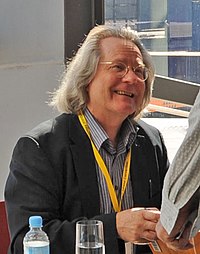Soul Time: Well, it must be, because we are hearing from the New Humanists again
(Who were the old Humanists, by the way? Anyone know?)
In “Natural history of the soul”, Caspar Melville profiles “the man who thinks that spirituality is essential to consciousness, and science can tell us why.”
That would be Nicholas Humphrey, an evolutionary psychologist and author of Soul Dust: The Magic of Consciousness who
claims to have solved two fairly large intellectual conundrums. One is something of a technical matter, about which you may have thought little or not at all, unless you happen to be a philosopher. This is the so-called “hard problem” of consciousness. The problem is how an entity which is apparently immaterial like the human consciousness – it exists, but you can’t locate it, much less measure it – can have arisen from something purely physical, like the arrangement of cells that make up the human body. The second problem Humphrey claims he has solved is a rather more everyday one, about which you may well have puzzled yourself. This is the problem of the soul. Does it exist? What sort of a thing might it be? Does everyone have one, even atheists? (Volume 126 Issue 2 March/April 2011)
I’ve often wondered why just anyone who claims to have solved two hard problems in one book is accorded a lot of acceptance and respect. But credulity could have something to do with it.
Anyway, we buzzes of neurons learn, Read More ›


